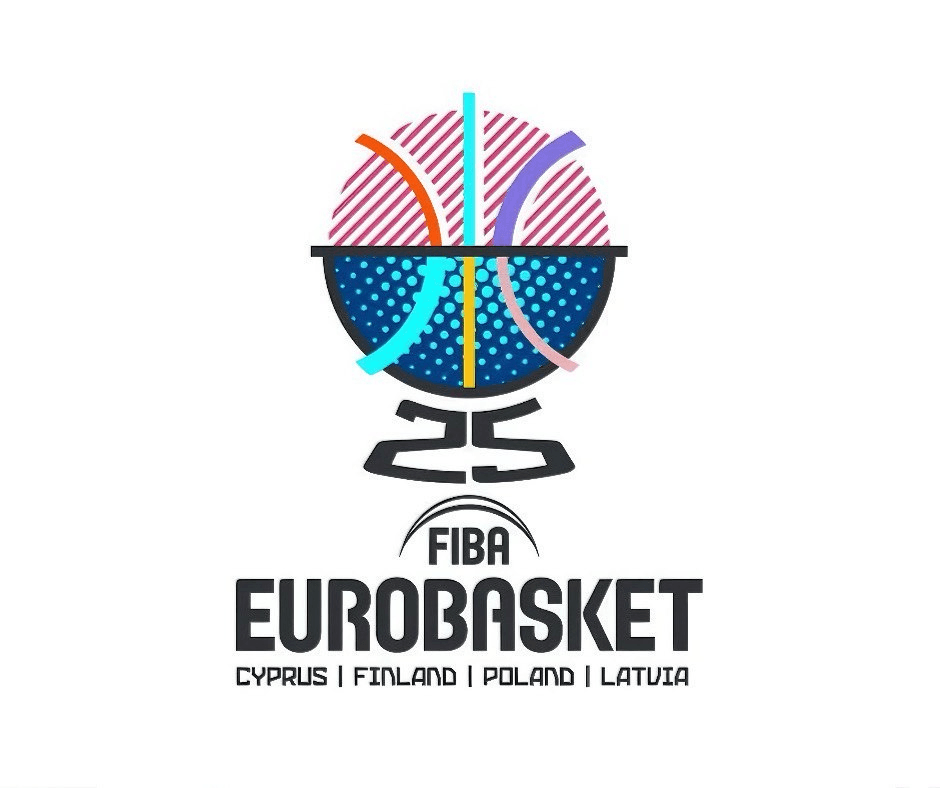Kraljevi Kvota - Eurobasket 2025 preview

After a four-year break, in the next 20 days we will be waiting for EuroBasket 2025. This will be the 42nd competition in a row and will be played in four countries. The hosts are Latvia, Cyprus, Finland and Poland. The defending champion is Spain and we must closely follow this competition, which will be one of the most interesting in recent times. You can find all the events within EuroBasket 2025 on our website or on the accounts in the description below.
Kraljevi Kvota Home Page
Kraljevi Kvota IG
Kraljevi Kvota FB
Kraljevi Kvota TikTok
The multi-host system continues at this championship. The matches will be played in Limassol, Tampere, Katowice and Riga, where all the elimination matches, including the final, will be played.
24 national teams will participate in this championship, divided into six groups. Each team will play five games in the group, and the four best-placed teams will advance to the knockout phase, or the round of 16.
Group A, whose matches will be played in Riga, includes: Serbia, Latvia, Czech Republic, Turkey, Estonia and Portugal.
Group B will be played in Tampere and includes: Germany, Lithuania, Montenegro, Finland, Great Britain and Sweden.
Limassol will host Group C, which consists of: Spain, Greece, Italy, Georgia, Bosnia and Herzegovina and Cyprus.
And in the last group, Group D, there will be: France, Slovenia, Poland, Israel, Belgium and Iceland. These matches will be played in Katowice.
At this championship, we will have the opportunity to watch many NBA players, which raises the competition to the highest possible level, and precisely because of the arrival of all these stars, interest in this championship is great. The best NBA player of today, Nikola Jokić, together with Bogdan Bogdanović, will play for Serbia. Porzingis is in Latvia, while Quetta plays for Portugal. Sruder and Wagner will play for Germany, Valančunas for Lithuania, and Vučević for Montenegro. Greece has the great Giannis Atentokumbu, while Spain has Santi Aldama. Another leading NBA star will play in Group D, Luka Dončić, who plays for Slovenia, then Coulibaly and Risaser who play for France, and Dani Avdija who plays for Israel.
The group stage lasts until September 4, so September 5 will be a break day, and then the round of 16 matches are scheduled for September 6 and 7. The quarterfinals are scheduled for September 9 and 10, the semifinals for September 12, and the match for third place and the final duel are scheduled for September 14.
When it comes to the favorites in this championship, Serbia has the best chance. Then there's Germany, as world champions, then France, Greece, Spain...
About the participating countries from the region:
Serbia
Serbia has held the United States under control for almost the entire match at the Olympics, has won five major medals in the past 11 years and is more eager than ever to win the one thing that has been missing from this generation - gold. With Nikola Jokić and Bogdan Bogdanović on the court, Serbia has its limits, but this time they will be especially careful, after a shocking elimination in the round of 16 in 2022.
Montenegro
Led by Chicago Bulls veteran Nikola Vučević, who is playing in his fourth European Basketball Championship, they will be a tough opponent for any team. Montenegro is known for its resilience and fighting spirit and will be looking to take a step forward after being eliminated in the round of 16 in the last two editions.
Bosnia and Herzegovina
Bosnia and Herzegovina is making its 11th appearance at the FIBA EuroBasket this summer. And they would love to relive the experience of their debut in 1993 - the only time they have finished in the top eight. After missing out on the 2017 edition, Bosnia and Herzegovina return to the continental stage in 2022 in Germany. The Dragons beat Hungary and Slovenia, but then lost their final game to Lithuania and missed out on the chance to advance from the group stage for the first time since 1993. Jusuf Nurkić, Kenan Kamenjaš and their teammates will have that defeat in mind as they fight to finally taste the experience of playing in the knockout stage again.
The former USSR has the most titles, with a total of 14 gold medals, followed by Yugoslavia, which has 8 gold medals. The USSR no longer exists and Russia is not participating, while Yugoslavia also does not exist, but Serbia is. Spain is third with four gold medals and is defending its title.
Stay with the Kings of Odds as always and follow the championship with us, because every day we will publish betting suggestions, as well as previews and announcements of group matches, all the way to the final match.
ZZ